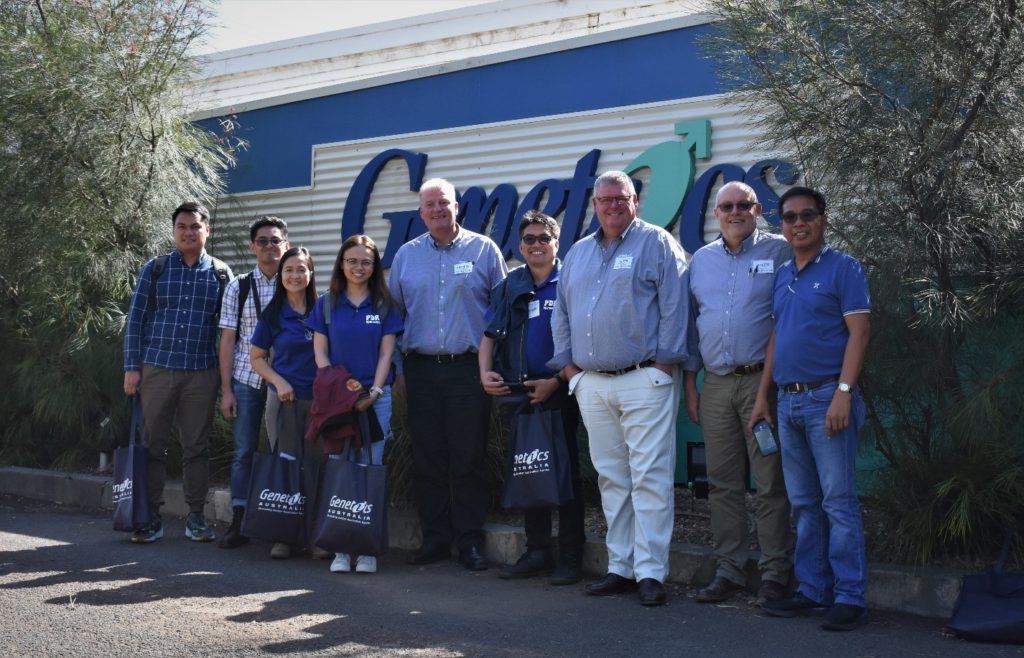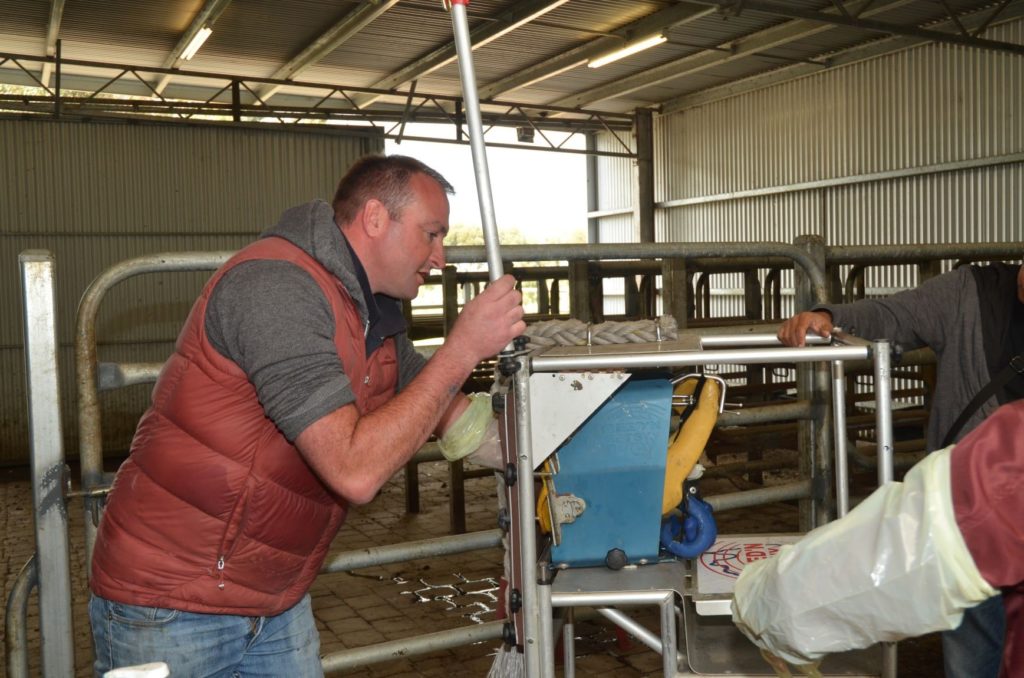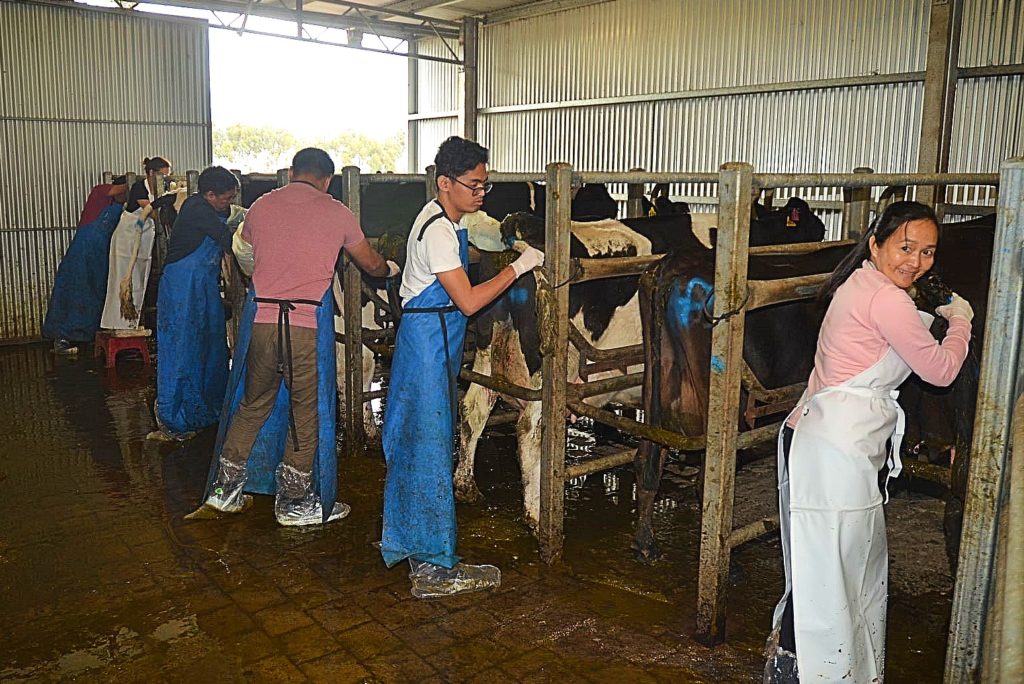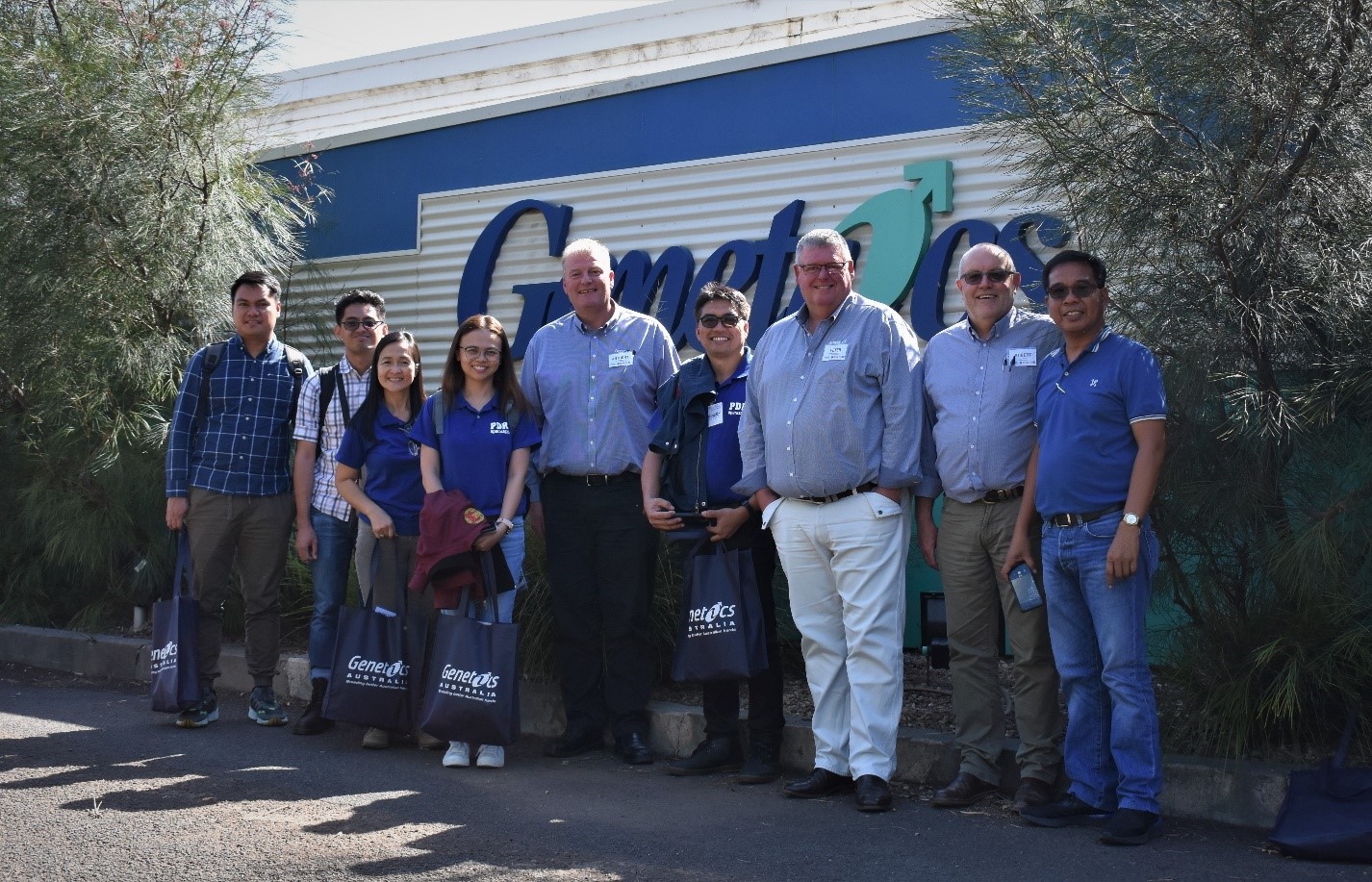
Six representatives from the Philippine Dairy Research Consortium (PDRC) Dairy Enhancement Program under Project 1 Application and Improvement of Embryo Transfer (ET) and Artificial Insemination (AI) Technologies as Tools Toward Achieving the Desired Number of Genetically Superior Breeder Dairy Cattle visited key facilities in Victoria, Australia last November 10-15, including the artificial insemination (AI) laboratory and stud farm at the head office of Genetics Australia; AgriBio Centre at La Trobe University; and Dairy Australia Southbank.
During the visit, the team learned the basics of rectal palpation from Mr. Brad Pickford at his training center and farm in Byuduk, Victoria. Mr. Pickford developed the Breed’n Betsy model (see image below), an artificial cow simulator device, which is a valuable aid for hands-on training on AI and embryo transer (ET).


The team also participated in a lecture and demonstration at the in vitro fertilization (IVF) laboratory of Dr. Richard Fry at Speedbreed Donor Centre in Gnarawarre, Victoria.
The activity was conducted under Project 1 headed by Dr. Amado A. Angeles of UPLB-DTRI, and is a part of the PDRC Dairy Enhancement Program funded by the Department of Science and Technology through one of its agencies, the Philippine Council for Agriculture, Aquatic and Natural Resources Research and Development (DOST-PCAARRD).

